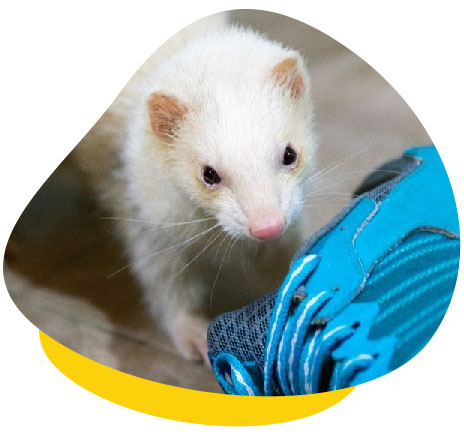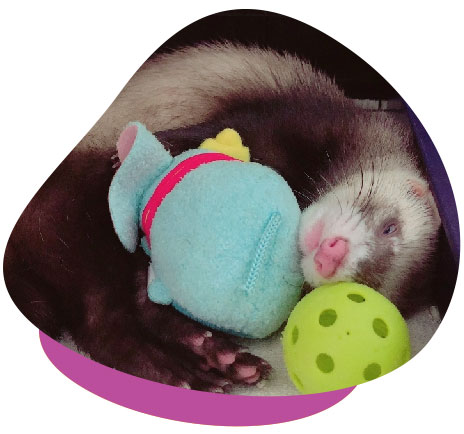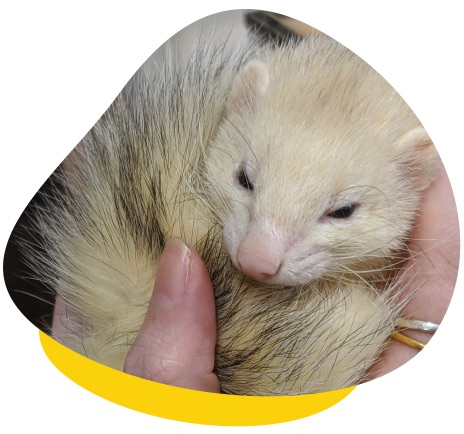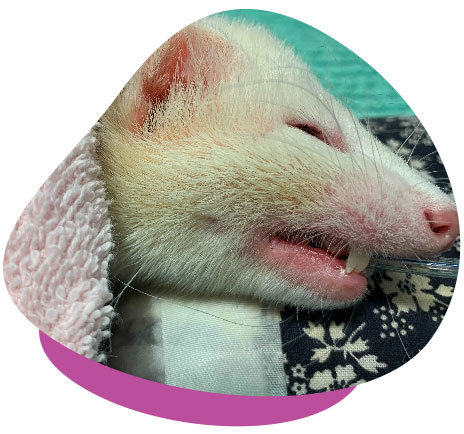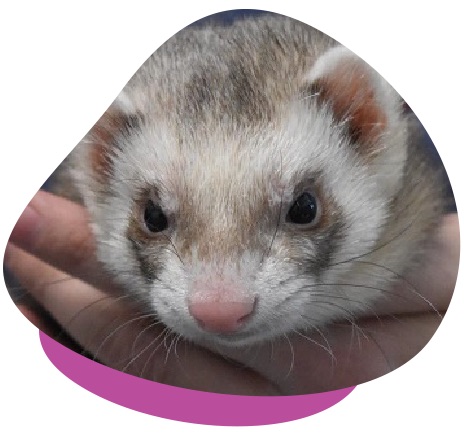Ferrets make wonderful pets, as they are full of life and each has its own unique personality. One thing that is common to almost all ferrets is there inquisitive and playful nature. We love them for this, however, in some cases, it can lead to problems.
This is particularly the case when they eat something they shouldn’t have! This article looks at mischievous ferrets doing exactly that, how we diagnose it and the treatment options.
